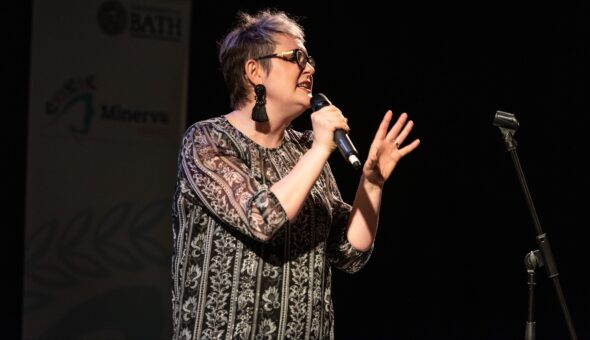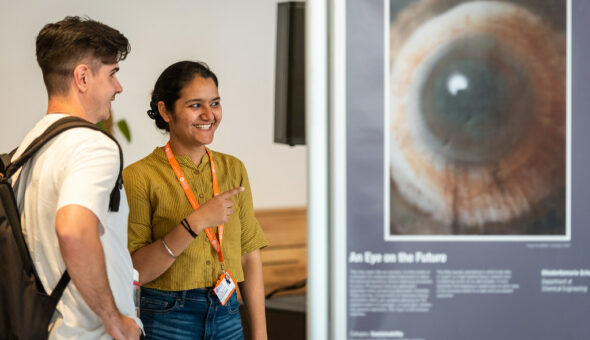Professor Ed Feil and Dr Susanne Gebhard (Biology & Biochemistry) was awarded £500 to develop and deliver public engagement activities that examined the extent to which the public are receptive to the extensive media coverage of antibiotic resistance, identifying the key messages that needed clarifying and the most effective approaches for doing so.
This project involved developing and assessing different public engagement activities to highlight the issues of antibiotic resistance. The activities were used on university UCAS open days and during the Bath Taps into Science event on 17 March 2017. For these events, a stand was designed and developed by five undergraduate students as part of their final year projects, supervised by Susanne. The stand presenters consisted of five PhD students from the Infection & Immunity research theme in the Department of Biology & Biochemistry, and the target audience were children visiting the Bath Taps into Science School Fair.
The stand included three interactive activities, including “Spin the wheel”, “Which antibiotic?” and “Build a bacterium”. “Spin the wheel” proved to be the most popular with the students, as the explanation of lab equipment was quick and hands-on and the microbe samples attracted the students. “Which antibiotic?” was successful as 90% of the students chose the correct antibiotic straight away. However, the youngest students didn’t engage with this activity because the concept was too difficult for them. “Build a bacterium” attracted students due to the puzzle they could help to assemble. Most of them understood the principle of antibiotic resistance, but the activity took up a lot of space and was difficult to explain to those who didn’t know what a bacterium is. The older students didn’t enjoy this activity because it was too simple.
In total, there were 306 interactions from children aged 7-13. The project team used survey-based approaches both prior to and during the events to gain data about the key knowledge gaps and level of interest/concern. The children’s background knowledge was minimal, but the parents and teachers commented that the stand was a unique opportunity for the children to learn about microbiology and laboratory research, as it’s not possible to teach this at schools due to limited funds and equipment. The evaluation found there was a risk of bias in the activities due to possible peer-pressure from other children or parents, and an inability to participate in their first choice activity due to stands being so busy. However, the presentation at Bath Taps was successful and provided the team with confidence to give more public engagement projects to undergraduate students. Involvement of PhD students improved networking within the research theme, which should create more interest for the PhD students to use public engagement with their research.
Contact Susanne (s.gebhard@bath.ac.uk) for further information about her project.
Respond

